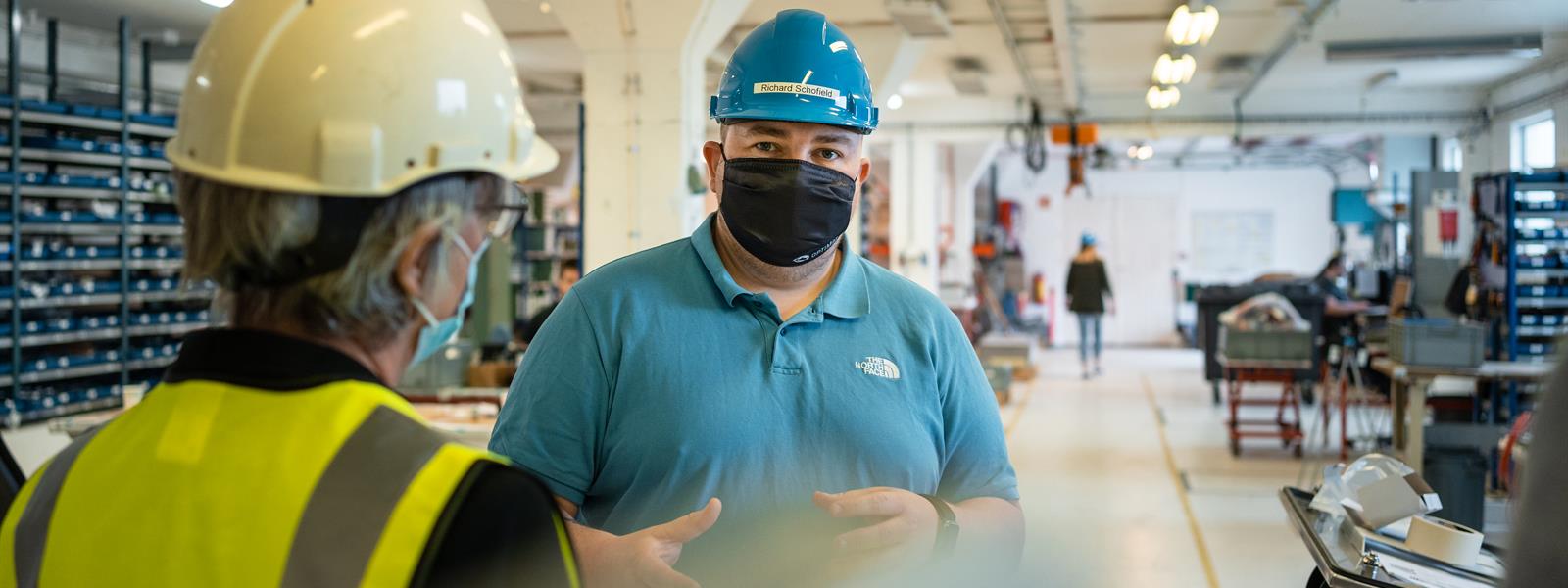
How Lean will transform the way we work at Optimar
Lean is all about optimizing the people, effort, resources and energy in your organization to create value for the customer. At Optimar we have been working with Lean methodologies for some time now and today, following a recent experiment in conducting a "virtual Gemba Walk" together with SINTEF Manufacturing, we had a Q&A with our COO, Richard Schofield, about how this will transform the way we think about working.
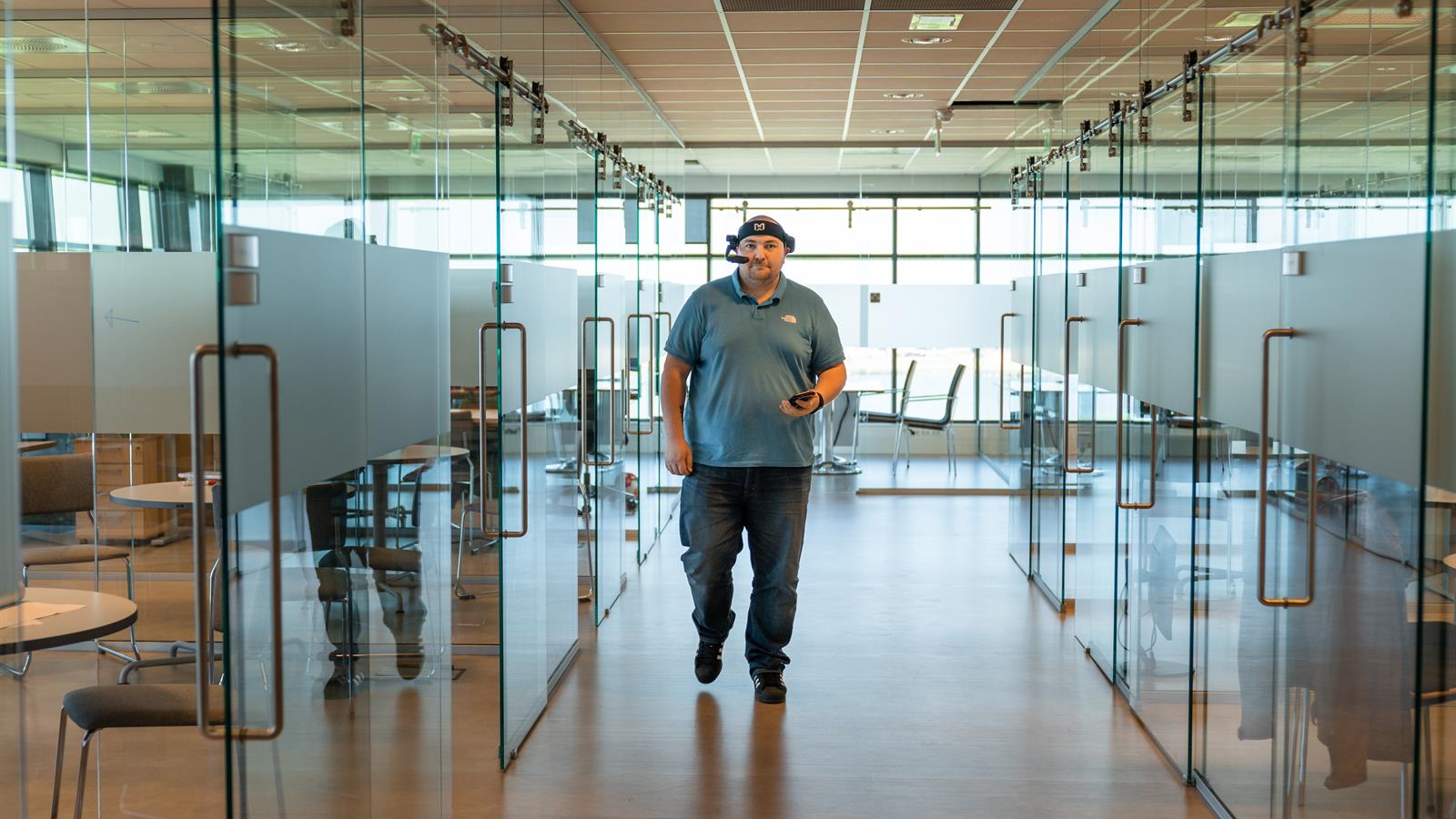
COO Richard Schofield ready for our Gemba walk
Can you tell me about how Optimar works with the Lean methodology and why it's so important?
Optimar has been working in a more focussed way with Lean methodologies since its acquisition by Haniel in 2017 implementing key Lean tools such as 5S, Hoshin Planning, and Practical Problem Solving. Lean will be an essential part of our growth strategy, making us more competitive and even more customer focused.
How will the virtual Gemba walk influence the future of Optimar?
This event forms part of our Lean journey. We want to change the way we think about work, and engage the whole organization in continuously improving – rather than focusing on top-down initiatives which may solve the “big” problems, but may not solve the daily issues which cause frustrations for our front-line staff. A fundamental part of Lean Thinking is respect for people, and by taking time every day to make work better for every member of the team we show that we respect them, their time, and their problems.
We recently hosted SINTEF Manufacturing and Lean Forum Nordvest, and it was exciting to participate in the making of a framework with practical actions which leaders can take in order to strengthen Lean Thinking in the organization.
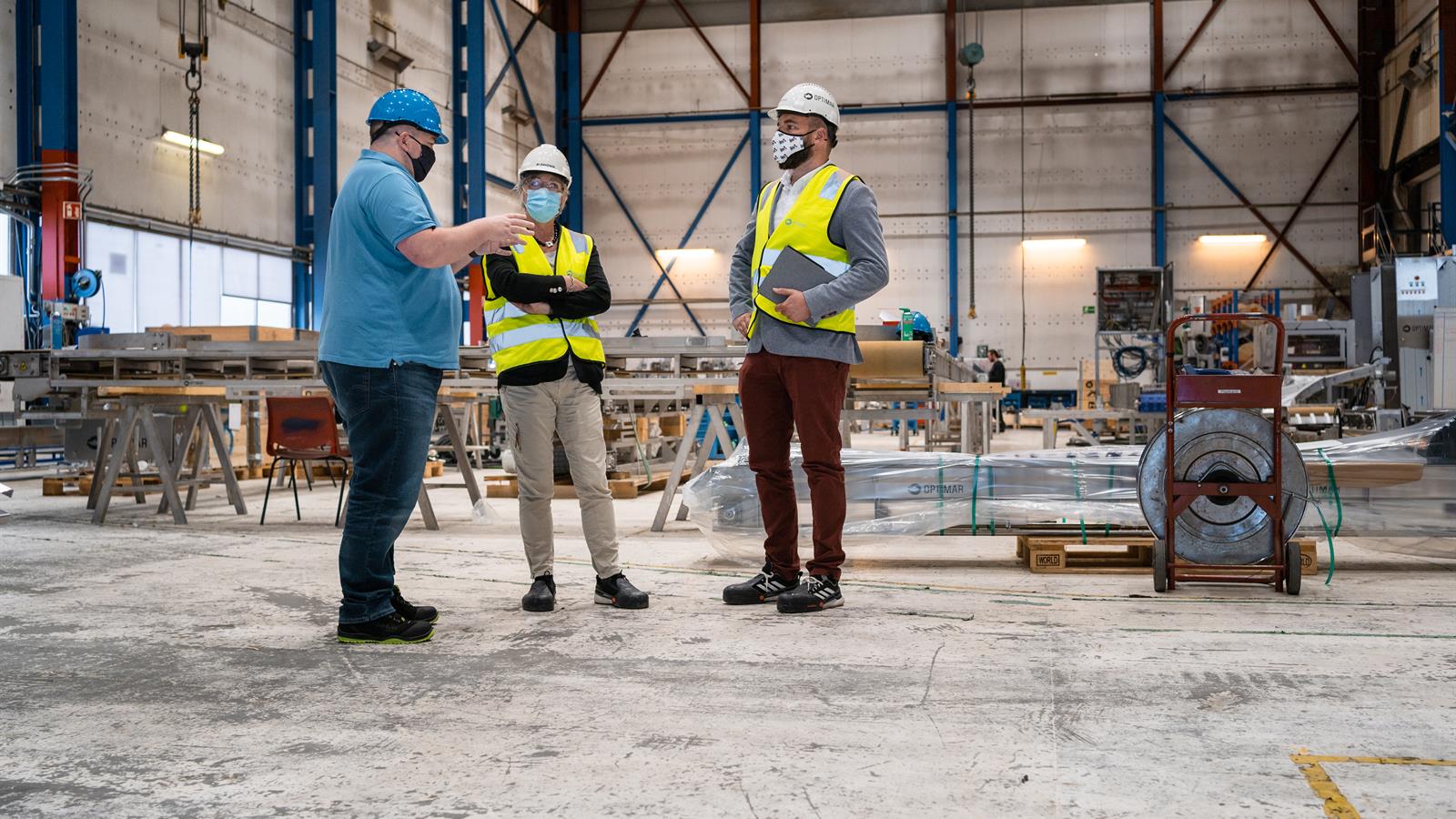
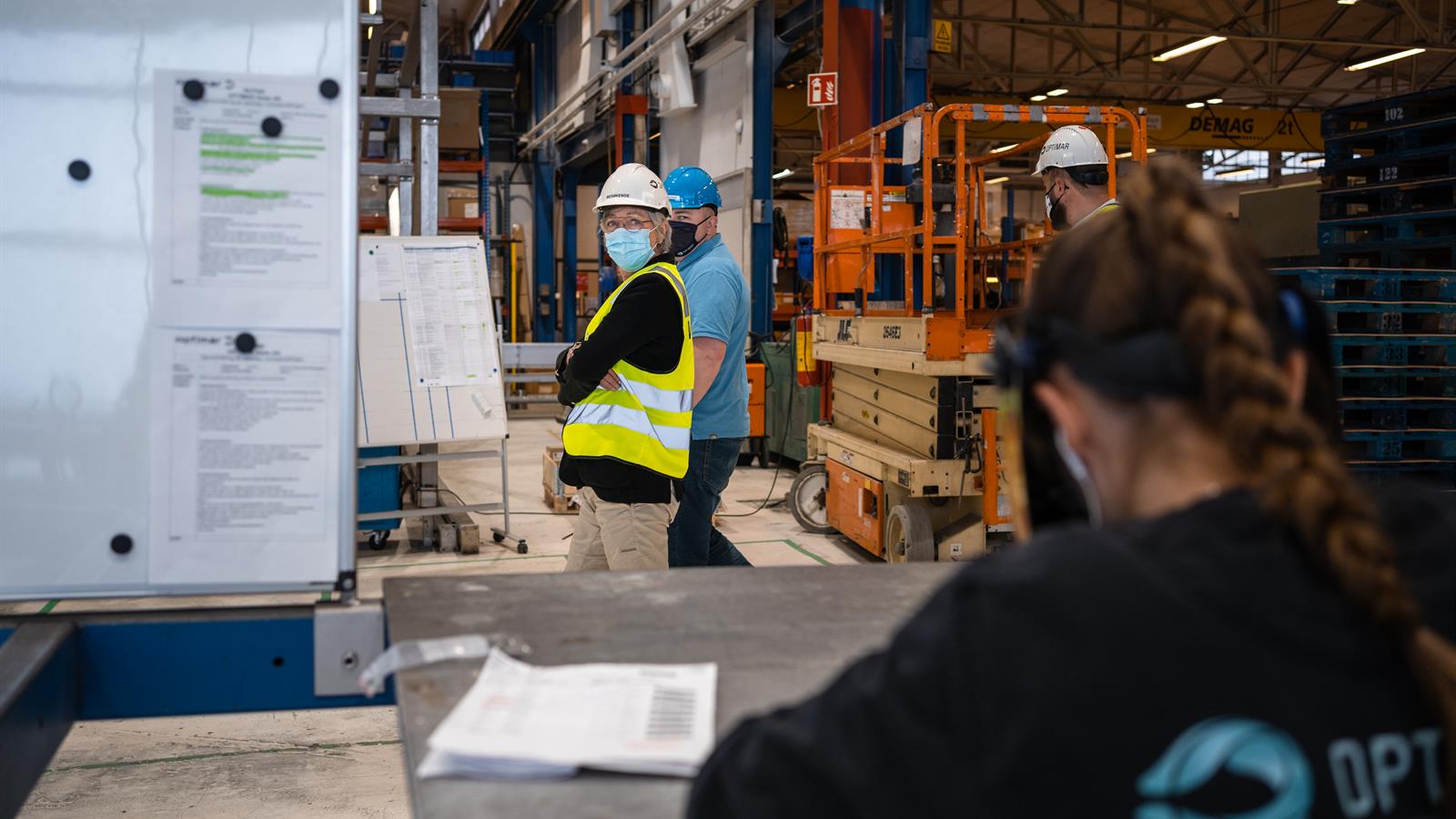
Taking the Gemba walk and involving our employees is the key to continuous improvement
Tell me about the Gemba Walk. What is it?
Gemba means “the place where value is created”. The idea of the Gemba walk is to “go, look, see” and understand the problems which are slowing down the creation of value for our customers. By taking regular Gemba walks you get a much deeper understanding of the business, and the opportunity to coach people how to frame their problems and form a solution using traditional Lean tools. The idea is to, over time, develop an organization which is engaged in continually learning, continually identifying problems, and continually improving.
Which positive effects are you looking for with this particular exercise?
The virtual Gemba walk was an opportunity to share a Gemba experience with a larger group of people; more than would be possible if the same group had been physically walking around in Optimar. We hope to spark some curiosity, and to lower the threshold to others to get away from their work stations and go and learn more about the business and, while they’re learning about it, grab the opportunity to make it better!
How did the employees react?
It was definitely a shock for them to see me walking through the business with a camera strapped to my head! But I think those who participated got something out of it; for example an understanding that the Gemba doesn’t have to mean production – we are adding value in other places too, and Lean Thinking can be applied all over the business.
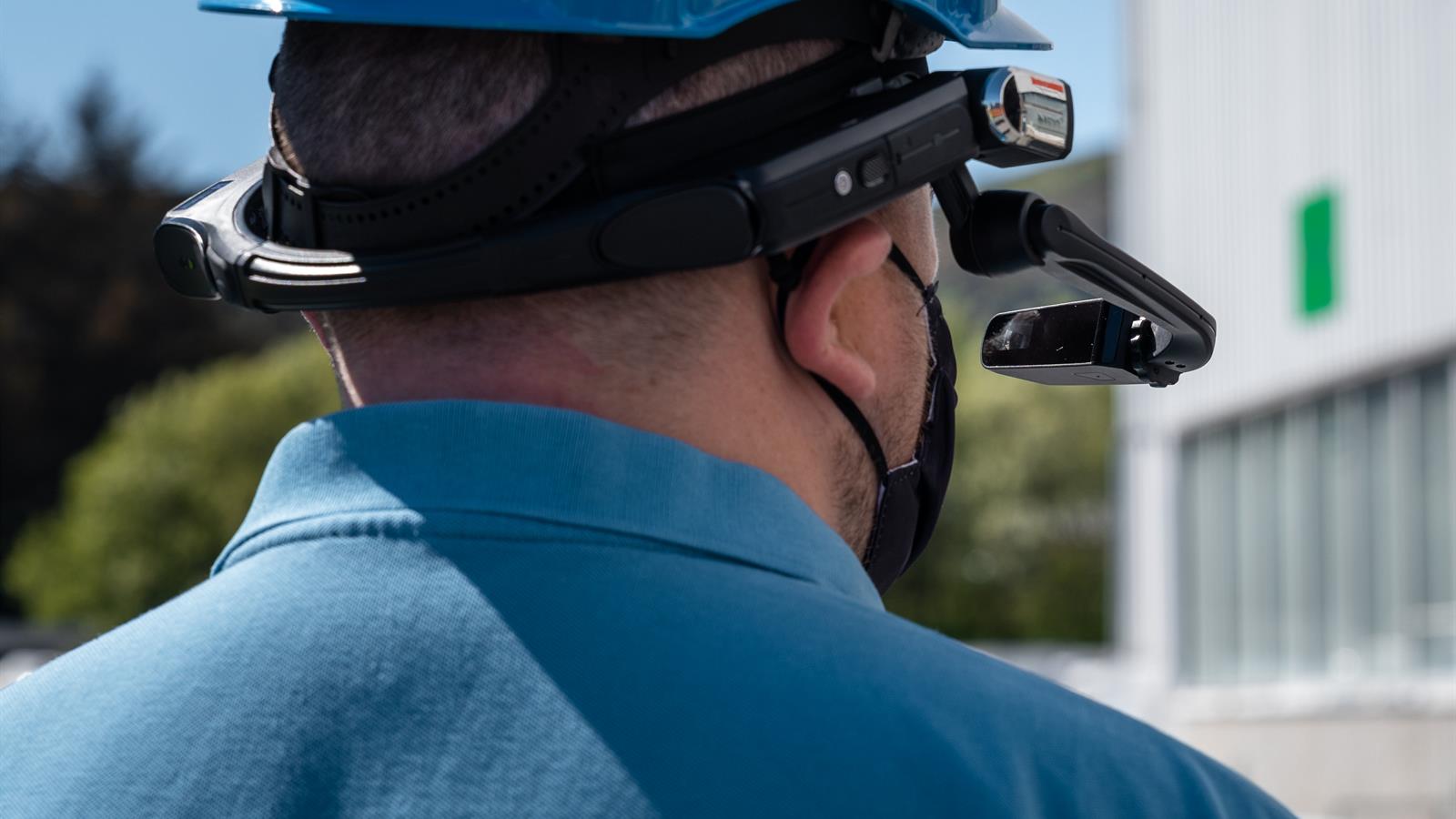
Is this something you want to do more?
Absolutely! The whole point of this exercise was to launch the idea of doing Gemba walks regularly, maybe without the camera next time. I was actually back at the Gemba today, working with the welding department to look at a recurring problem they have been experiencing. It’s very rewarding to have an open discussion about the problems in the business, and contribute in some way to making them better.
What are your hopes for the future when it comes to the Lean methodology in Optimar?
I hope that we are able to embed the core Lean tools and ideas into Optimar. But more importantly than that I hope we are able to develop an organization with the curiosity and desire to unearth problems – in addition to the confidence, mandate and capability to fix them! That’s the essence of Lean Thinking.
We were also lucky enough to be able to combine this Gemba walk with a workshop together with NTNU to push our sustainability strategy to the next level. What we see clearly is that Lean and sustainability have natural synergies, and that by thinking in a Lean way in our decision making processes we simultaneously improve our competitiveness and our environmental footprint, simply by reducing the amount of waste in our processes.
A continuous process
Working with Lean methodologies is a continuous process. Along with Chief Scientist and Research Manager at SINTEF Manufacturing, Dr. Daryl Powell, Optimar will extend the focus on how we can provide even more value to our customers.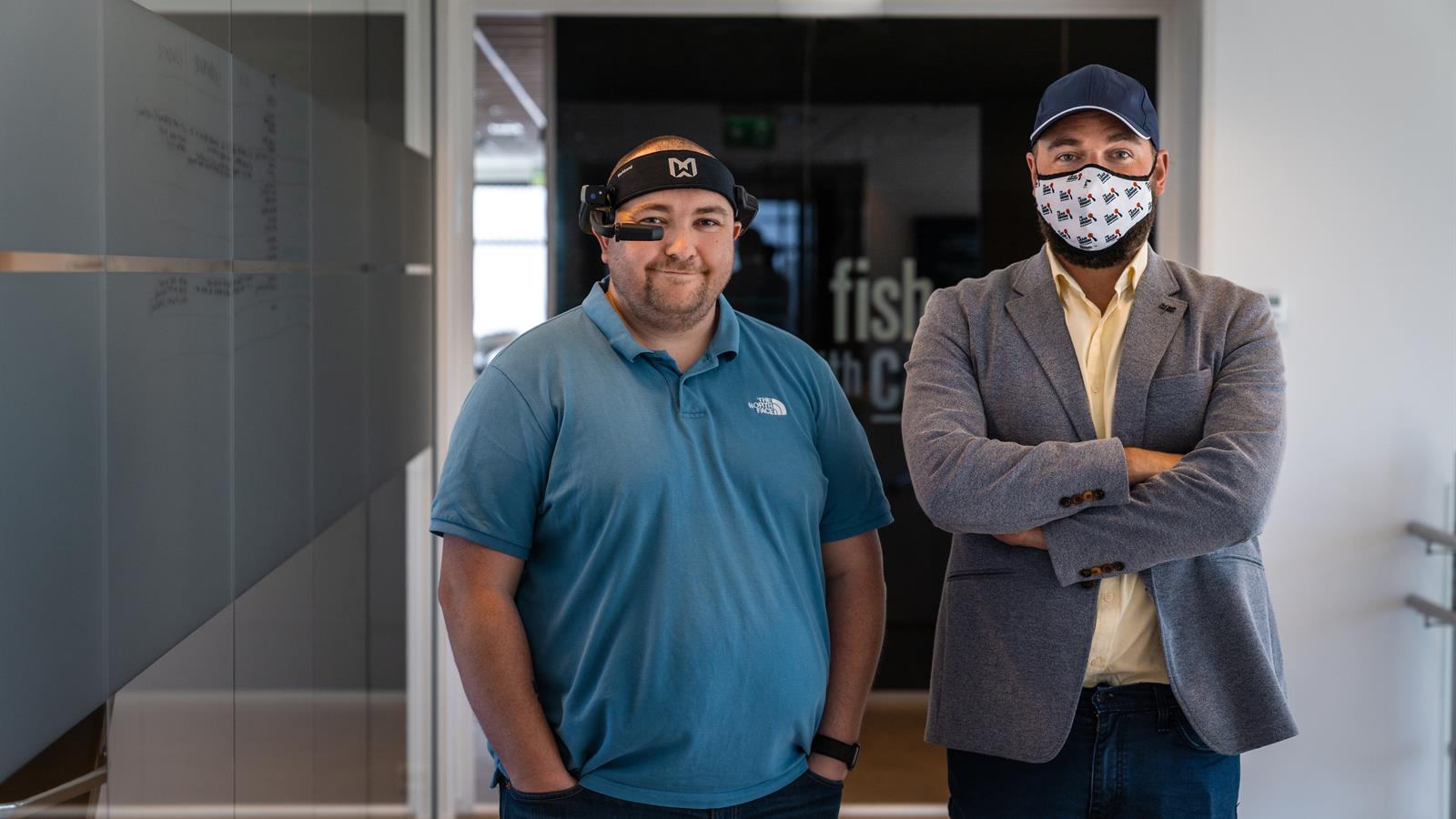
– I am confident that we are starting something exciting. Both Al Ghelani (CEO at Optimar) and Richard Schofield (COO at Optimar) have a strong just-do-it attitude and strike me as hungry for improvement – which is essential for succeeding with the frequent, rapid learning cycles that support lean thinking and practice.
We wish Richard and the rest of the Optimar team along with SINTEF the best of luck – and look forward to hearing all about the next Gemba walk.
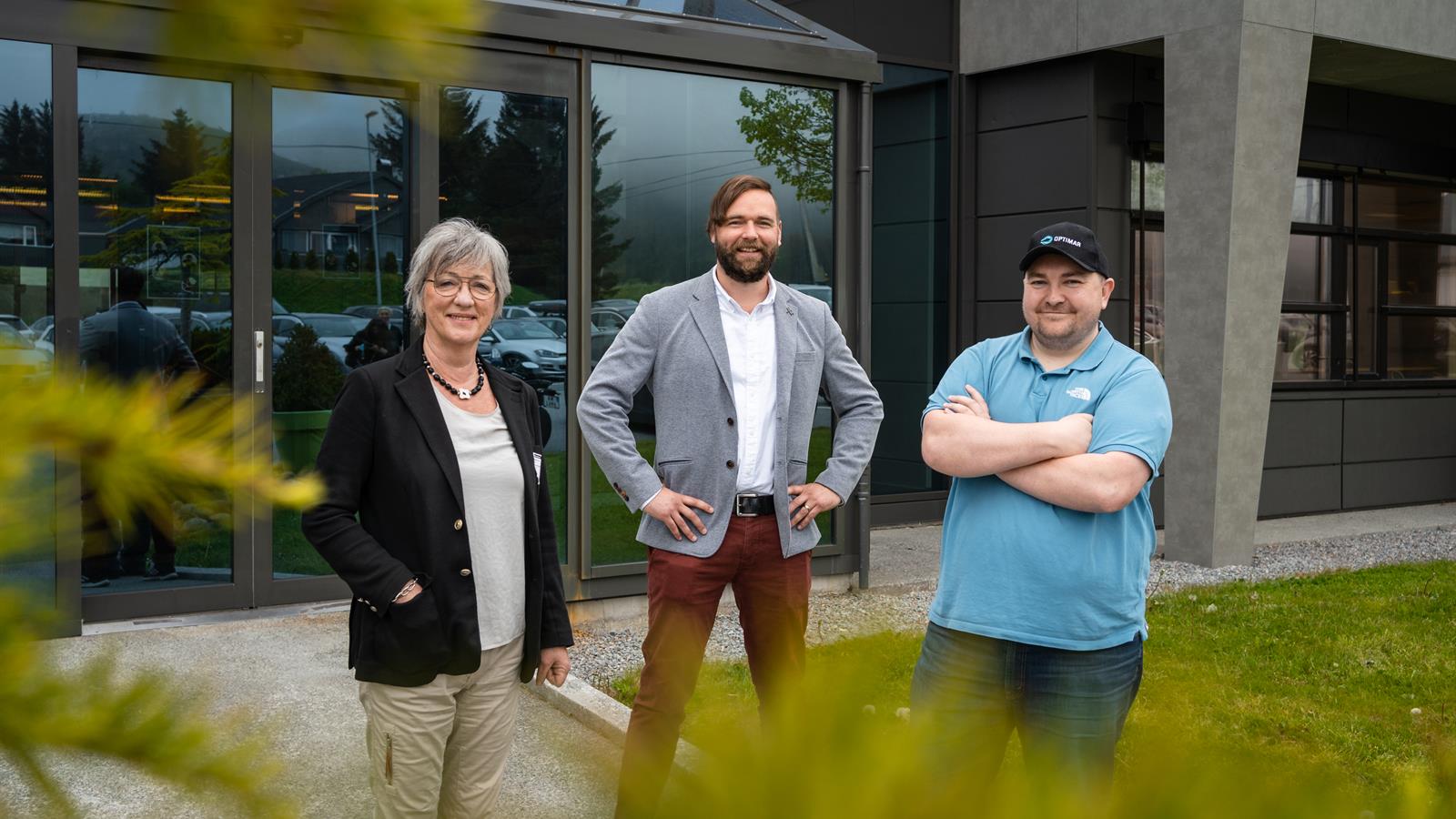
Annik Magerholm Fet Vice Rector of NTNU in Ålesund, Dr. Daryll Powell and COO Richard Schofield.
